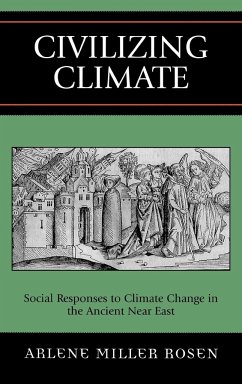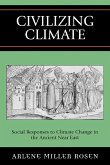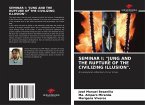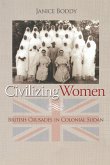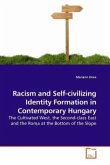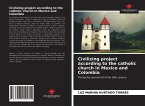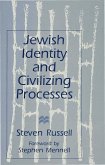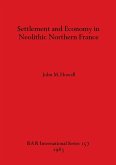This book provides a description, based upon research evidence from the Near East and elsewhere, of changes in climate and how they affected social and political developments. It includes three major case studies of the Neolithic, Early Bronze, and Roman/Byzantine periods.
Hinweis: Dieser Artikel kann nur an eine deutsche Lieferadresse ausgeliefert werden.
Hinweis: Dieser Artikel kann nur an eine deutsche Lieferadresse ausgeliefert werden.
Climate and climate change have long been acknowledged as fundamental factors in the development of human societies and economies, but the complex and varied relationship between people and climate is often presented in simplistic or deterministic terms.This important volume investigates various episodes in human history in which different societies-and different sectors of those societies-reacted to climatic fluctuations of different magnitudes. Through the use of case studies of hunter-gatherers, early complex societies and empires, Miller Rosen deftly demonstrates how different societies and social structures contended with climatic variations in sometimes ambiguous ways, either succumbing to such forces, or over-riding them when conditions allowed.While an understanding of climate change is critical to the future of global populations, it is equally important to appreciate what impact such changes might have wrought in the past. This important book will no doubt stimulate critical thinking on an important and timely subject. -- T. J. Wilkinson, Professor in the Department of Archaeology, Durham University, UK Civilizing Climate certainly ranks as the foremost of Arlene Miller Rosen's many contributions to our understanding of the complex relationship between humans, environment, and climate in the ancient Near East. Regrettably, as earth scientists havebecome progressively able to reconstruct ancient climatic sequences across the globe in the last two decades or so, an increasing number of scholars have sought to link major junctures of transformational or historical change in the ancient Near East to climatic perturbations known to have affected the area throughout the Holocene. A problem that mars most of these studies is that they implicitly treat ancient Near Eastern societies as passive hostages to climatic events that they were unable to either foresee or forestall. Civilizing Climate represents a very timely and welcome correction to such simplistic views. Miller Rosen treats Holocene climatic changes as one of many relevant factors in understanding ancient Near Eastern socio-evolutionary trajectories, and she emphasizes in equal parts the role of the environment in creating incentives or disincentives for individual and collective human action and the ability of humans to either exacerbate the impact of climatic conditions beyond their -- Guillermo Algaze, Department of Anthropology, UCSD This groundbreaking book interprets how climate change has played a role in shaping the trajectory of cultures in the eastern Mediterranean, and provides a model for conducting similar studies in other regions of the world. Summing Up: Highly Recommended. CHOICE, November 2007 Rosen succeeds in making this very detailed research accessible for those who are not experts in the exact fields of research she reviews...This book can serve well many different publics. Those interested in the history of the Levant will find here an excellent survey of its prewritten and classical history. H-Net: Humanities and Social Science Reviews Online Rosen recognizes the multifarious aspects of studying paleoclimactic events in relation to how societies rise and fall...Rosen's detailed examination of paleoenvironments and social responses are well-documented and executed in a professional manner. A close study of political ecology and ancient empires is presented remarkably well. Paleoanthropology, September 2008 This is an excellent book, extremely clearly written, comprehensive and potentially of wide significance. At it heart is an examination of the relationship between culture and environment at different historic (and prehistoric) times in the southern Levant (Israel, Jordan). She uses this to address "big questions" concerning the relationship between climate change and past societies, including cross-cultural comparisons. At a time when the potential impact of future global warming is high on everyone's agenda, many researchers have looked to the past to provide insights into the consequences of climate change. Much of this literature falls into the trap of crude environmental determinism. By contrast, Dr Rosen uses much more subtle - and relevant - arguments to relate climatic uncertainty to societal change. In Civilizing Climate she avoids the excesses of climatic determinism, but also firmly reminds us that changes in natural resource availability are fundamental to the sustainability of agricultural systems and to population support. This is a delicate balancing act, and Dr Rosen has achieved it with great success. -- Neil Roberts, Professor of Geography, University of Plymouth, UK Climate and climate change have long been acknowledged as fundamental factors in the development of human societies and economies, but the complex and varied relationship between people and climate is often presented in simplistic or deterministic terms. This important volume investigates various episodes in human history in which different societies-and different sectors of those societies-reacted to climatic fluctuations of different magnitudes. Through the use of case studies of hunter-gatherers, early complex societies and empires, Miller Rosen deftly demonstrates how different societies and social structures contended with climatic variations in sometimes ambiguous ways, either succumbing to such forces, or over-riding them when conditions allowed. While an understanding of climate change is critical to the future of global populations, it is equally important to appreciate what impact such changes might have wrought in the past. This important book will no doubt stimulate critical thinking on an important and timely subject. -- T. J. Wilkinson, Professor in the Department of Archaeology, Durham University, UK Civilizing Climate certainly ranks as the foremost of Arlene Miller Rosen's many contributions to our understanding of the complex relationship between humans, environment, and climate in the ancient Near East. Regrettably, as earth scientists have become progressively able to reconstruct ancient climatic sequences across the globe in the last two decades or so, an increasing number of scholars have sought to link major junctures of transformational or historical change in the ancient Near East to climatic perturbations known to have affected the area throughout the Holocene. A problem that mars most of these studies is that they implicitly treat ancient Near Eastern societies as passive hostages to climatic events that they were unable to either foresee or forestall. Civilizing Climate represents a very timely and welcome correction to such simplistic views. Miller Rosen treats Holocene climatic changes as one of many relevant factors in understanding ancient Near Eastern socio-evolutionary trajectories, and she emphasizes in equal parts the role of the environment in creating incentives or disincentives for individual and collective human action and the ability of humans to either exacerbate the impact of climatic conditions beyond their control or to circumvent those impacts by social (organizational) or technological innovations. At its root, Miller Rosen's approach recognizes that socioeconomic systems operate within geographical and ecological parameters that are sometimes substantially altered by human action itself, and that necessarily constrain the boundaries of social actions that are at any one time possible (given existing technologies) and probable (given earlier developmental trends and culturally-mediated perceptions of opportunities and threats). In so doing, Miller Rosen's theoretical perspective offers a nuanced view of the complex interactions between humans and their environment that is of substantial heuristic value and which, in my opinion, will stand the test of time. -- Guillermo Algaze, Department of Anthropology, UCSD This volume is a masterful example of how difficult it is to carry out true interdisciplinary research... This volume will be of considerable interest to a wide range of scholars and to more general readers interested in the nuances of how climate change affcets, but does not determine, culture... Her volume is an excellent contribution to both the archaeological and paleoenvironmental literature. Rosen skillfully addresses the nuances between cultural adaptation and climatic change. Journal Of Anthropological Research, 2009, Vol 65 One of the many strengths of this readable book is the seamless integration of archaeological, historic, and paleoclimatic data to produce a diachronic, anthropological model of climate change. A second strength is the emphasis on human agency in discussing environmental trends. This volume is an important update to the contributions of the founders of anthropological climate studies, Karl Butzer and Fekri Hassan. Journal Of The American Oriental Society, April-June 2008

